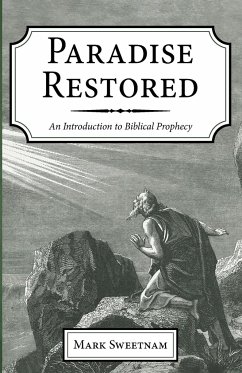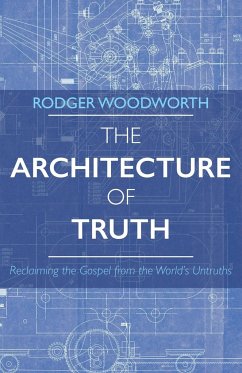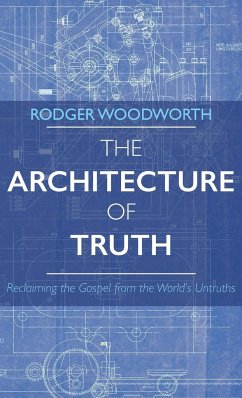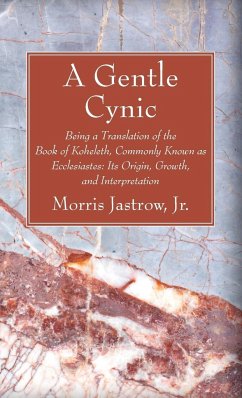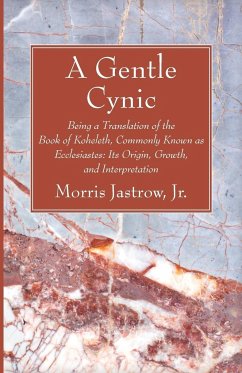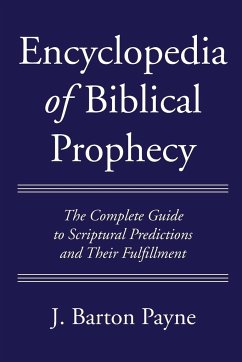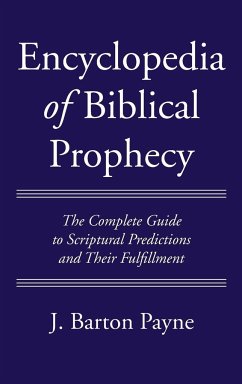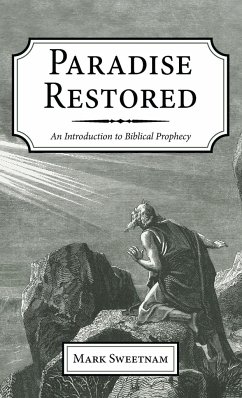
Paradise Restored

PAYBACK Punkte
17 °P sammeln!
This book has its origin in the conviction that a grasp of God's prophetic program is not an esoteric indulgence for the eccentric, but an essential element of every believer's knowledge of his or her Bible and an indispensable part of living a scriptural Christian life. In the prophecies of Scripture, God treats us not as servants, but as friends, allowing us to see and understand something of his plans for the universe--and for his own. This book will assist the student of Bible prophecy by providing a clear and concise outline of future events. It addresses the question of how prophetic Scr...
This book has its origin in the conviction that a grasp of God's prophetic program is not an esoteric indulgence for the eccentric, but an essential element of every believer's knowledge of his or her Bible and an indispensable part of living a scriptural Christian life. In the prophecies of Scripture, God treats us not as servants, but as friends, allowing us to see and understand something of his plans for the universe--and for his own. This book will assist the student of Bible prophecy by providing a clear and concise outline of future events. It addresses the question of how prophetic Scripture ought to be interpreted, and describes the distinctive hopes of Israel and the church. It also stresses the practical value of prophecy in our everyday lives, highlighting its importance as a preventative against doctrinal distortions and a promoter of correct Christian conduct. Throughout the book, we are reminded that "the testimony of Jesus is the spirit of prophecy," as Christ is seen to be the central subject of prophecy, and the Source and Sum of the believer's hope.



